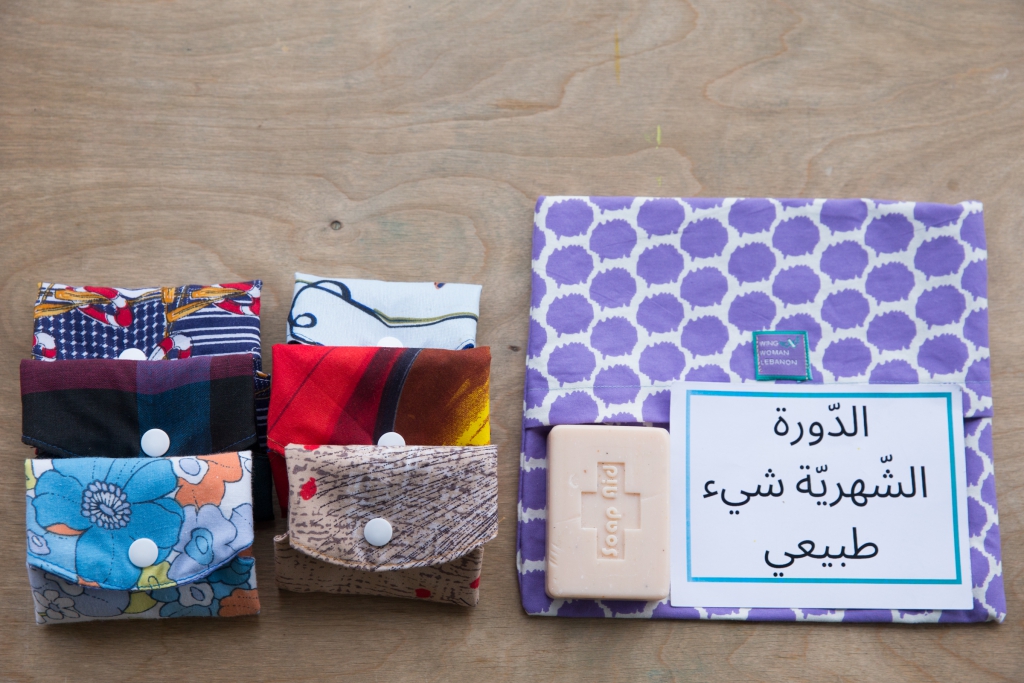With Lebanon’s economic crisis leading to a 500 percent increase in the price of menstrual pads since 2019, period poverty is significantly on the rise.
In a bid to reverse period poverty and ease the burden off women in the country, Meelie Pemberton launched “WingWoman Lebanon” as a livelihoods program in collaboration with Stand for Women after the 2020 Beirut blast.
WingWoman employs Syrian and Palestinian women to produce affordable and reusable menstrual pads, which are readily available to purchase and are a great and safe alternative to costly single-use pads.
“It all started when the women just did some really basic sewing classes,” said Pemberton. “It was more of a mental health thing. Get other women together chatting, and meeting each other.”
The women valued the meet-ups but expressed an important need to make money, Pemberton told Beirut Today.
WingWoman would eventually acquire sewing machines, with trainers teaching the women how to use them to produce reusable pads. Eight women in the Shatila refugee camp are currently employed in the production of pads, with a summer school also running.
“When the school is finished in September, we’re going to train them up to make pads. So we’re going to have 16 women making pads,” Pemberton said.
Watch | How to wash and dry reusable pads
Pemberton says her project was mostly motivated by easing the burden of the socio-economic crisis that struck Lebanon, and a desire to reverse the subsequent rise in period poverty—which is creating gender inequality on multiple fronts.
“Period poverty is creating inequality,” she said. “There’s such a great focus on gender equality but if you don’t target period poverty, you’re not dealing with that.”
WingWoman Lebanon also focuses on spreading awareness regarding menstrual health. Awareness sessions provide scientific explanations that break down everything related to menstruation. They answer all questions that those attending may have in a comfortable and safe space, in the hopes of also breaking down common taboos and stigmas in Lebanon.

Why shift to reusable pads?
Reusable menstrual pads typically last between 2.5 to 3 years, with one WingWoman pack of 8 pads being the equivalent of around 792 disposable pads.
The pads come in 3 different sizes: Small (24 cm), medium (26 cm), and large (29 cm).
They are a sanitary and affordable alternative to disposable pads, especially in the midst of the crisis. Reusable pads are also eco-friendly, they are cheaper than disposable pads, and they are easy to wash.
Even if you have a heavy flow, the materials used to make the WingWoman pads are absorbent and leak-proof.